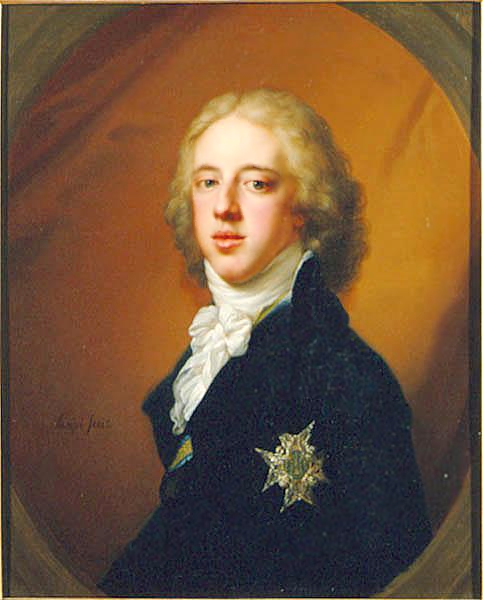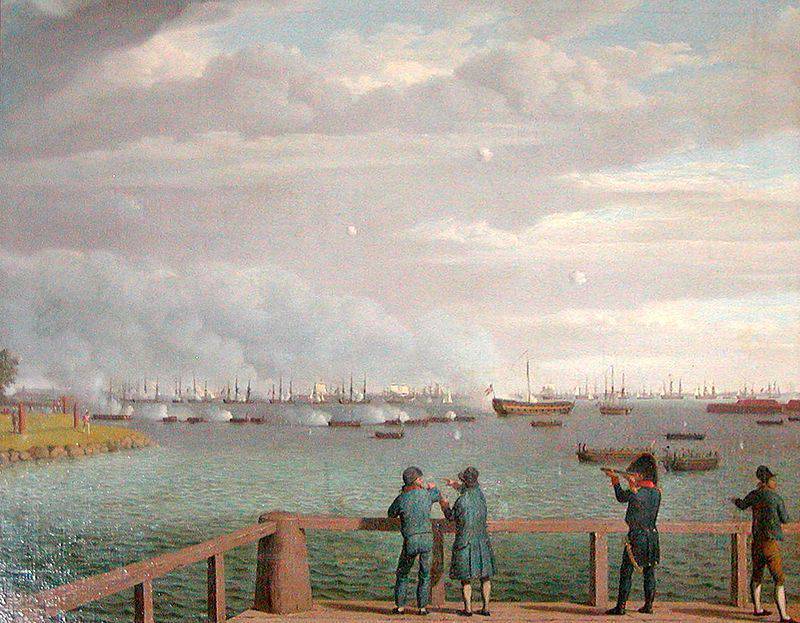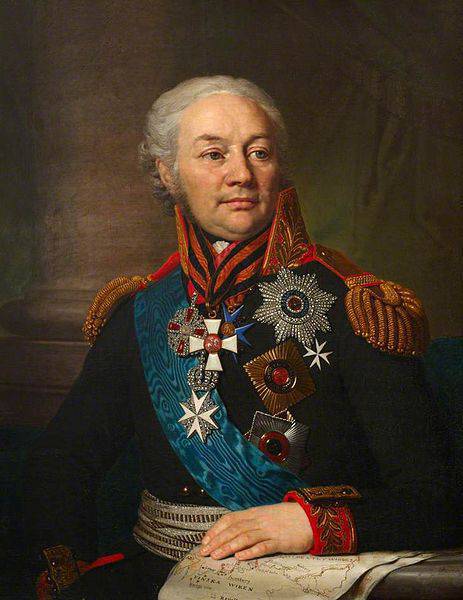How Russia defeated Sweden and annexed Finland
The basis of the war was a conflict of interests between England and France, and France and Austria. At the same time, England and France have long fought in the framework of the Second Hundred Years War. England fought for decades with Louis XIV, Louis XV and Louis XVI. The “Restoration War” was just a cover for England’s global and national interests. France was the main enemy of England in Europe, there was a struggle for markets and colonies, for leadership in Europe and the world. British the fleet could only challenge the French fleet (before Trafalgar). England needed a weak, led France, which could not challenge Britain in Europe and the world, and would serve its interests. France and Austria were rivals in the dominance of fragmented and weak Italy. Their interests also clashed on the Rhine, fragmented into dozens of German states. It was a power struggle for leadership in continental Europe.
Russia began to climb into these European clashes in the time of Catherine II. However, a sensible German woman, verbally cursing the revolutionaries and calling for a struggle against the Jacobins, in fact continued to resolve the national interests of Russia. At a rapid pace, they mastered Novorossia, strengthened the young Black Sea fleet, and decided the centuries-old problem of the aggressive Polish bridgehead of Western civilization. At the same time, the original Russian lands were returned, and the ethnically Polish lands went to Prussia and Austria, which did not stand on ceremony with the Poles. It is quite possible that if Catherine had lived for several years, then Russia would have solved the problem of the straits with Constantinople-Tsargrad.
Emperor Paul I, at first, in spite of his mother, wanted to refuse to interfere in European affairs and wars altogether, so that it would be a very wise step. But then he let himself be convinced that without Russia, order could not be restored to Europe. The Russian squadron of Ushakov in the Mediterranean Sea and the army of Suvorov in Italy achieved serious success. However, Pavel, contrary to leisure myths and gossip, was not a fool and soon realized that he was being deceived, that England and Austria were using Russia as “cannon fodder”, solving purely their own problems.
The angry Russian emperor Pavel stopped the war with France and began negotiations with Napoleon on a strategic alliance. The policy of rapprochement with France was in the interests of the Russian Empire, so the two great powers did not have a common border and fundamental contradictions. The expansion of France, for example, in Italy and Spain, its struggle with England for the colonies, the weakening of Austria, did not hurt Russia. On the contrary, the weakening of England, Austria and Prussia was beneficial to Russia, reducing the military thunderstorm in the western strategic direction and allowing to solve various tasks in the south-western, southern and eastern directions (the Balkans, the Straits, the Caucasus, Central Asia, the Far East and Russian America), and also focus on internal development.
However, this did not suit England, where at that time the “command center” of Western civilization settled, which led globalization aimed at creating a slave-owning, caste world order. As a result, the British organized the elimination of Paul by the hands of representatives of the degenerate Russian aristocracy. Many Russian aristocrats and dignitaries were unhappy with the “knight” Paul, who tried to restore the beginnings of discipline and service in the Russian nobility. Pavel took on a huge burden, trying to stop the degradation of the Russian nobility, which increasingly turned into a parasitic class of the people, almost completely divorced from the Russian “soil” culture, having German, French and English as the main language. In his opinion, the nobles should have been a genuine elite (a kind of ideal knightly order), leading society along the path of development.
From union to confrontation
After the death of Paul, his son Alexander I came to the throne. He needed to solve the problem: continue the course of an alliance with Napoleon or re-join the anti-French camp. Alexander for a number of reasons, including for personal reasons, chose to enter into an alliance with England against France. The ambition of the young king, who wanted to defeat the "Corsican monster" and the interests of the "German" and "English" parties were above national interests. The Romanovs were connected by thousands of threads to Germany. Alexander's relatives and the “Russian Germans” demanded intervention in the affairs of Germany, and therefore of Europe. Alexander himself was ambitious, offended by Napoleon, was eager for military glory. He even decided to personally lead the army, which moved on Napoleon.
The third anti-French coalition included Sweden. She was dragged into the war by King Gustav IV. He also unbearably thirsted for military glory and suggested that Sweden could again become one of the great military powers of Europe. And the Swedish nobles were not averse to war, and even the gold of Britain. There was Sweden and a territorial target. Sweden still preserved the remnants of its empire and hoped to seize land in Pomerania.
2 January 1805 was an alliance between Russia and Sweden. Sweden was to deploy troops for action in Northern Germany. However, the 1805 campaign ended in a crushing defeat for the anti-French coalition. In October, the Austrian army was destroyed and captured near Ulm, and in November, Napoleon dispersed the combined Russian-Austrian army led by the Russian and Austrian emperors near Austerlitz. The Swedes tried to start fighting in Pomerania, but were soon forced to retreat.
December 26 1805 Austria signed a peace treaty with France in Presburg. And Prussia, without entering the war, as hoped in Russia, concluded an allied treaty with Napoleon. Thus, the Russian Empire, not counting England, which had decided to defend the island in the Battle of Trafalgar, was left alone in front of Napoleon’s victorious empire. It would seem that Alexander should make peace with Napoleon. After all, Russia was the only European power that fought with France not for its national interests. Napoleon, despite the fact that Petersburg in 1805 opposed it, was not hostile to Russia and did not make plans for its dismemberment. Russia received a unique chance to go about their business.
However, Alexander did not want to put up. In 1806, the fourth anti-French coalition was created. June 19 and July 12 signed secret union declarations between the Russian Empire and Prussia. In the fall of 1806, a coalition was formed consisting of England, Sweden, Prussia, Saxony and Russia. England, like during the previous unions, gave money. Russia and Prussia fielded soldiers. Prussia replaced the battered Austria, which this time did not dare to speak out against France. I joined the coalition and Sweden. However, the Swedes took the English money, but did not rush to send troops to Western Europe.
This war ended again with the defeat of Napoleon’s opponents. The scenario of the war resembled the 1805 war. Self-confident Prussians did not wait for the Russian army and engaged the French. October 14 The Prussian army ceased to exist in the battle of Jena and Auerstedt in October. The Prussian kingdom collapsed and was occupied by French troops. Russia had to fight the French alone. At the same time, the Russian army was connected with the war with the Ottoman Empire. 1806 June 2, the Russian army was defeated near Friedland and retreated beyond the Neman. The French occupied Berlin and Warsaw and for the first time reached the Russian border on the Neman River. Alexander had to put up. 1807 June was a meeting of two emperors on a raft in the middle of the Neman River opposite the city of Tilsit.
Napoleon, despite the victory, did not demand anything special from Alexander. He only asked to meddle in the affairs of Germany and break the alliance with England. He did not insist on a military alliance, he only wanted Russia's strict neutrality. In return, Napoleon untied Russia's hands on the most important historical and strategic directions - in the north and south. Petersburg could freely solve its problems with Sweden and the Ottoman Empire with the approval of Napoleon. In addition, at the request of Alexander, Napoleon retained Prussia as an independent kingdom.
True, if on the problem of Finland and Sweden Napoleon was sincere and offered to join these territories to Russia, then on the Turkish issue the French emperor was cunning. France itself had strategic interests in the Middle East, in Turkey, and did not want to give Russia the Straits and Constantinople, since this greatly strengthened the Russian position in the Mediterranean. This also included the interests of Austria, which Napoleon was tied to France at that time.
However, Alexander had the opportunity to seize the Bosphorus and the Dardanelles, Constantinople, if he followed the path of his father and concluded a true strategic alliance with France. For example, Napoleon wanted to intermarry with the Romanovs. It was possible to give him one of the sisters of Alexander. As a result, it was easy to divide the Ottoman Empire into spheres of interest: France - Egypt, Palestine, Syria, perhaps, Mesopotamia, which added gunpowder to relations between England and France; Russia - Straits, Constantinople with the region, the Transcaucasus with Greater Armenia. At the same time, France and Russia could together restore the Balkan states that were under the Turkish yoke. Given the fact that France was forced to fight England, it gradually became tied up in Spain, it was forced to control Italy, and look at Austria with Prussia, Russia could freely solve its tasks. Napoleon needed a calm rear to concentrate on fighting England and "digesting" the occupied territories. Napoleon would sooner or later die or die, and his heirs would hardly be so talented statesmen and military leaders. Another European empire would not survive its creator.
However, the crafty Alexander began a double game with Napoleon and did not stop interfering in German affairs. This predetermined the cautious attitude of Napoleon to St. Petersburg and the future conflict between France and Russia.

Swedish king Gustav IV Adolf
Danish question. The beginning of the war with Sweden
Meanwhile, the British continued to solve their national problems. “Enlightened” Britain considered any state its enemy, whose fleet could potentially be used by France and neutral states that tried to trade on their own. So, in August 1807, the British fleet attacked the Danish kingdom, which tried to remain neutral in this confrontation.
July 26 1807 was a powerful British fleet from England with 20-thousand. landing troops. August 1 British ships appeared in the Great Belt Strait. 8 August 1807 British ambassador Jackson went to Crown Prince Regent Frederick and said that Britain reliably knew that Napoleon wanted to force Denmark into an alliance with France, that England could not allow this, and therefore demands that Denmark give Britain its entire fleet . In addition, the ambassador demanded that British troops be allowed to occupy Zealand, the island on which the capital of Denmark is located. The prince refused.
The British landed on August 14 on the island of Zealand and defeated a detachment of the Danish army near the city of Køge. In a few days, General Wellesley’s corps took Copenhagen to its surroundings. The Danish army at that time was concentrated on the southern border with Prussia in order to counter the possible invasion of Napoleon. At the same time, the metropolitan area, along with Copenhagen, were poorly protected. From 2 to 5 September, the British fleet carried out artillery shelling of the Danish capital: 5000 volleys on the first night, 2000 volleys on the second night and 7000 - on the third. At the same time hundreds of civilians died, every third building of the Danish capital was destroyed. September 7 Danish General Payman signed the act of surrender. The surviving ships of the Danish fleet were transferred to the British. The British took the Danish fleet, burned the shipyards and the naval arsenal, destroying the naval potential of Denmark.

English ships in Copenhagen harbor
The Russian Imperial House (after the death of Peter II, the last Romanov in the male line, the Romanovs were de facto rather the Holstein-Gottorp dynasty) had family ties with the Danish and Holstein families. In addition, Denmark since the time of Peter the Great was Russia's ally in the struggle with Sweden. Therefore, the seizure of Copenhagen in St. Petersburg caused great discontent. In October, 1807 Russia submitted an ultimatum to England - a break in diplomatic relations until the fleet was returned to Denmark and all losses were compensated. In March, Alexander 1808 imposed a ban on the import of British goods to Russia. The Anglo-Russian war of 1807 — 1812 began.
Russia and England did not have a common border, so the fighting between the British and the Russians had a local character and was conducted at sea. Emperor Alexander I demanded the assistance of Sweden in order to keep the Baltic Sea closed to the fleets of other powers on the basis of the 1780 and 1800 contracts. Gustav IV rejected these demands and headed for rapprochement with England. 16 November 1807, Petersburg again turned to Stockholm with a proposal for assistance, but for about two months did not receive any response. Finally, the Swedish king said that the execution of the 1780 and 1800 contracts could not be started, since the French occupied the ports of the Baltic Sea. Then it became known that Sweden is preparing to help England in the war with Denmark. The British promised to give Sweden, which belonged to the Danes, Norway.
At the end of 1807, the emperor Napoleon strengthened the continental blockade of England. 2 February 1808. Napoleon sent Alexander a letter in which he proposed “to remove the Swedes from their capital; on this side you must extend your borders as far as possible. I am ready to help you in this with all my means. ” 5 February Napoleon declared to the Russian ambassador in Paris, Count Tolstoy, that he agreed that Russia would acquire all of Sweden, including Stockholm.
Meanwhile, in February, England 1808 entered into a contract with Sweden, under which it pledged to pay Sweden 1 million pounds monthly during the war with Russia. In addition, London promised to put an auxiliary 14-th. corps to protect the western borders and ports of Sweden, so that Stockholm could throw the entire army east to fight the Russian Empire. As a result, Britain began to fight Russia with the hands of Sweden.
Thus, the Russian-Swedish war 1808-1809's. was caused by the desire of Russia in the context of its accession to the continental blockade and the beginning of the confrontation with England to solve the Swedish issue, including the security problem of the capital of the empire. Russia needed to establish full control over the Gulf of Finland and the Bothnian bays and ensure the safety of St. Petersburg. The Tilsit world of 1807 put Sweden before the question: either to join the continental blockade and thus jeopardize its naval trade in the English fleet and abandon the British market, or to preserve the traditional alliance with England and go to conflict with Russia, trying to take historical revenge. King Gustav IV Adolf set out to break with Russia, relying on gold and the fleet of Britain, although Sweden was not prepared for war.
Formal reason for the war gave the Swedes themselves. 1 (13) February 1808. Swedish king Gustav IV informed the Russian ambassador in Stockholm that reconciliation between Sweden and Russia was impossible as long as Russia held East Finland. In response, the Russian troops 9 February crossed the border. On February 18, Count Bucksgueden joined Helsingfors, Swedish troops took refuge in Sveaborg. The formal declaration of war from the Russian side was followed only by 16 in March 1808, when newsthat the Swedish king, upon learning of the crossing of the Russian troops across the border, ordered the arrest of all members of the Russian embassy in Stockholm.

The Commander-in-Chief of the Russian troops in 1808, during the Russian-Swedish war, Fedor Fedorovich Buksgevden
To be continued ...
Information